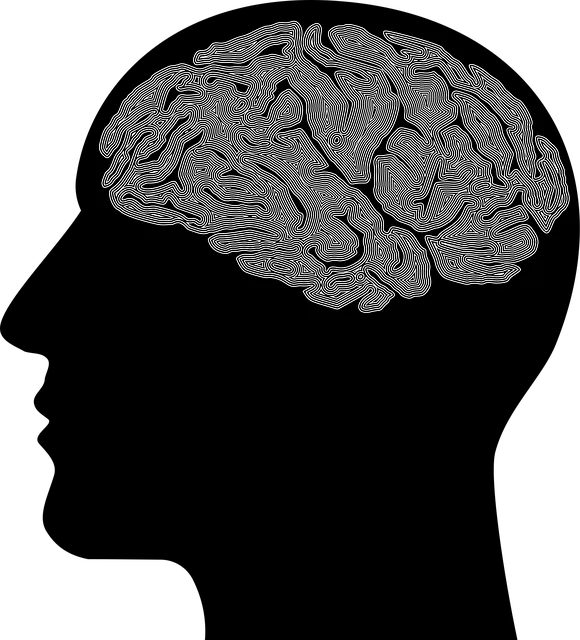The text highlights the detrimental impact of mental illness stigma on access to care and well-being. It advocates for normalizing open conversations about mental health, challenging societal norms, educating healthcare providers, and promoting initiatives like Golden Kaiser Permanente's Mental Wellness Coaching Programs. These strategies empower individuals to seek help without fear of judgment, while Kaiser Permanente fosters a supportive organizational culture and conducts stigma reduction workshops. Stigma reduction in healthcare requires collaboration, integrating coaching programs, educational campaigns, peer support groups, and technology for remote therapy, creating an inclusive environment where mental health is humanized and accessible.
Stigma surrounding mental illness remains a significant barrier to accessing quality care, impacting millions globally. This article explores comprehensive strategies to reduce stigma, drawing insights from pioneering initiatives like Golden Kaiser Permanente Behavioral Health Services. We delve into understanding the profound effects of stigma on mental healthcare, and present effective approaches for healthcare settings and community engagement. By examining these tactics, we aim to foster a more supportive environment, encouraging open conversations about mental health and promoting equitable access to care.
- Understanding Stigma and its Impact on Mental Health Care
- Golden Kaiser Permanente Behavioral Health Services: A Comprehensive Approach
- Strategies for Effective Stigma Reduction in Healthcare Settings
- Fostering Community Support and Awareness for Mental Illness
Understanding Stigma and its Impact on Mental Health Care

Stigma surrounding mental illness is a significant barrier to accessing quality care and can have profound effects on an individual’s well-being. It often manifests as negative attitudes, beliefs, and stereotypes about people with mental health conditions, leading to discrimination and social exclusion. This pervasive stigma prevents many from seeking the help they need, even when services are readily available, such as those offered by Golden Kaiser Permanente behavioral health services. Individuals may fear judgment or believe that their struggle is a personal failing, causing them to isolate themselves and exacerbate their symptoms.
Reducing stigma is crucial for creating an environment where people feel comfortable discussing their mental health openly. It involves challenging societal norms, promoting understanding, and encouraging empathy. Efforts like Burnout Prevention Strategies for Healthcare Providers and Healthcare Provider Cultural Competency Training play a vital role in this process. By educating professionals on the impact of stigma and providing tools to navigate these conversations sensitively, we can foster better patient-provider relationships. Additionally, initiatives focused on Mood Management can empower individuals to take control of their mental health journey and reduce the internalized stigma that often accompanies these conditions.
Golden Kaiser Permanente Behavioral Health Services: A Comprehensive Approach

Golden Kaiser Permanente Behavioral Health Services takes a comprehensive approach to mental illness stigma reduction, recognizing that addressing this issue requires multifaceted strategies. They offer a range of services designed to support individuals at various stages of their journey towards mental wellness. One key aspect is the development of Mental Wellness Coaching Programs, which provide personalized guidance and support to help people navigate their unique challenges. These programs empower individuals to adopt sustainable self-care practices and effective stress management workshops, fostering resilience and coping mechanisms.
Additionally, Kaiser Permanente focuses on creating a supportive organization culture where employees can openly discuss mental health topics without fear of stigma. Through educational initiatives and awareness campaigns, they break down barriers and encourage empathy within the workplace. This holistic approach ensures that their behavioral health services are not just reactive but proactive, ultimately contributing to a more inclusive and understanding society.
Strategies for Effective Stigma Reduction in Healthcare Settings

Stigma reduction in healthcare settings is a multifaceted approach that requires a concerted effort from all stakeholders. One effective strategy is to integrate mental wellness coaching programs into primary care, similar to Golden Kaiser Permanente behavioral health services. These programs can help patients develop resilience and inner strength by offering personalized support tailored to their needs. Educational initiatives for both healthcare providers and the general public are also crucial. Sensitization workshops and awareness campaigns can dispel myths and promote understanding, fostering an environment where individuals feel comfortable seeking help without fear of judgment.
Additionally, involving people with lived experiences in these efforts is invaluable. Peer support groups and stories of recovery can humanize mental illness, encouraging empathy and reducing stigma. Leveraging technology for remote therapy sessions and online resources further expands access to care, ensuring that more individuals receive the support they need. By combining these strategies, healthcare settings can create a supportive ecosystem that promotes mental wellness and reduces the barriers associated with seeking treatment.
Fostering Community Support and Awareness for Mental Illness

In reducing the stigma surrounding mental illness, fostering community support and awareness is a vital step. Organizations like Golden Kaiser Permanente behavioral health services play a crucial role in this process by providing accessible resources and education to help break down barriers and misconceptions. Through various initiatives, these services aim to create a more understanding and inclusive environment, ensuring individuals with mental health challenges feel supported and empowered.
Cultural sensitivity in mental healthcare practice is a key aspect of these efforts. By recognizing and addressing the unique needs of diverse communities, healthcare providers can offer tailored interventions that boost confidence and encourage open conversations about mental health. Regular community engagement activities and Mental Health Awareness campaigns further contribute to destigmatization, fostering an atmosphere where individuals feel safe to seek help without fear of judgment or discrimination.
Mental illness stigma reduction is a multifaceted effort that requires collaboration between healthcare providers, community organizations, and individuals. As demonstrated by Golden Kaiser Permanente behavioral health services, comprehensive approaches can significantly improve mental health care access and outcomes. By implementing effective strategies in healthcare settings and fostering community support, we can create a more inclusive environment where people feel comfortable seeking help without fear of judgment. This collective effort is crucial in eliminating the stigma surrounding mental illness and ensuring everyone receives the care they need.






